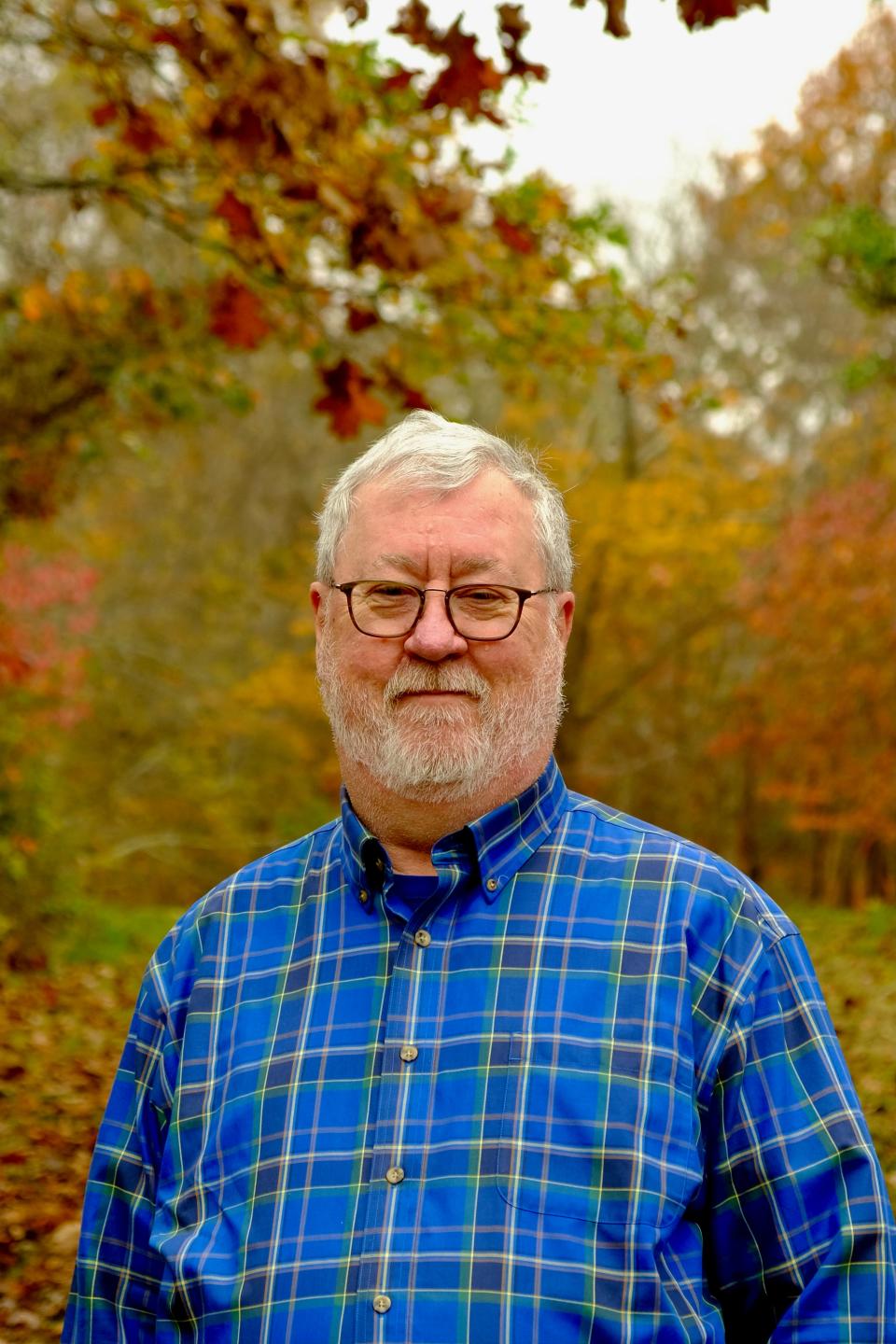Dover native writes biography of frontiersman John Gibson

DOVER — Writer Gary Williams has returned to a topic he first wrote about when he was a sophomore at Dover High School.
At age 16, he wrote an article about frontiersman John Gibson for a special section The Times-Reporter published to mark the premiere of Trumpet in the Land in 1970. It was his first published article.
Now — 52 years later — he has written a book titled "No Man Knows This Country Better: The Frontier Life of John Gibson." It was just released this month by the University of Akron Press.
"He was the most interesting founding father that no one's ever heard of," Williams said. "He's totally unknown but he lived a fascinating life. He was an officer of increasing rank in every frontier conflict from the French and Indian War in 1758 to the War of 1812.
"There's no portrait of him. There's no known descendants, and there's no personal papers of his left behind, so he's kind of forgotten by history."
Gibson, who was friends with Moravian missionaries David Zeisberger and John Heckewelder, served as commander of Fort Laurens in present-day Bolivar during the Revolutionary War.
He was known as a man of integrity and courage.

Williams was exposed to local history from an early age. His grandfather, Henry Hagloch, was editor of the Dover Daily Reporter for 50 years and wrote a book on the history of Tuscarawas County in the 1950s. Gary's father, Les Williams, was one of the directors of the Dover Historical Society for 50 years. His mother, Kay Williams, worked for The T-R and edited the special section that Gary's story about John Gibson appeared in.
"When I was growing up, my grandfather would tell me stories of local history, and he told me all about Fort Laurens. It sounded kind of exciting," Williams said.
His first job after graduating from Dover High School in 1972 was assisting at an archaeological dig at Fort Laurens when historians were trying to determine the location of the fort.
Williams was acquainted with the story of John Gibson, but it wasn't until Williams retired that he began researching the frontiersman's life.
Gibson grew up in Lancaster, Pa., where his father owned a tavern. He headed west at age 18 in 1758 as part of an army commanded by British Gen. John Forbes that captured Fort Duquesne, a French fort at the present site of Pittsburgh, during the French and Indian War.
After the war, Gibson stayed in the west and became a trader. He gained the respect of American Indians because he treated them fairly, Williams said. Gibson learned four different American Indian languages, married an American Indian woman and became the father of two children.
"So he was kind of like a cross-cultural figure. During wartime, he was a soldier, but during peacetime he was a negotiator," Williams said.
Gibson is known for being the translator of "Logan's Lament," a famous speech delivered by Mingo Chief Logan at the end of Lord Dunmore's War. Logan's entire family was killed by whites at the Yellow Creek Massacre in 1774. Among those slain was his sister Koonay, who was Gibson's wife. The massacre sparked Lord Dunmore's War.
Logan delivered his speech at the conclusion of the war. It ended, "For my country, I rejoice at the beams of peace. But do not harbor a thought that mine is the joy of fear. Logan never felt fear. He will not turn on his heel to save his life. Who is there to mourn for Logan? Not one."
Gibson was chosen to command Fort Laurens during the American Revolution because of his American Indian ties.
According to legend, Gibson convinced the British and their native allies to abandon their siege of Fort Laurens in 1779 by giving them two barrels of flour, even though the fort's garrison was close to starvation.
Williams said the story is probably not true. "Even though the story is not true, it still reflects his character."
Late in life, Gibson was appointed to be secretary of the Indiana Territory in 1800. He twice served as acting governor of the territory.
He knew seven of the first 12 U.S. presidents and at least a dozen generals in the Continental Army during the Revolution.
Williams, who now lives in Steubenville, is the author of five other books — four on Ohio history and a guidebook to hiking in the Buckeye State.
He spent about two and a half years researching his latest book, finding sources online and visiting libraries in such places as Carlisle, Pa., and Vincennes, Ind. As he would finish a chapter, he would show it to his father, Les, to get his approval. Unfortunately, his dad didn't live long enough to see the finished product.
Williams said his book will likely be available at libraries and museums. "No Man Knows This Country Better: The Frontier Life of John Gibson," can also be found on Amazon.com and the University of Akron Press website.
This article originally appeared on The Times-Reporter: Dover native writes biography of frontiersman John Gibson

